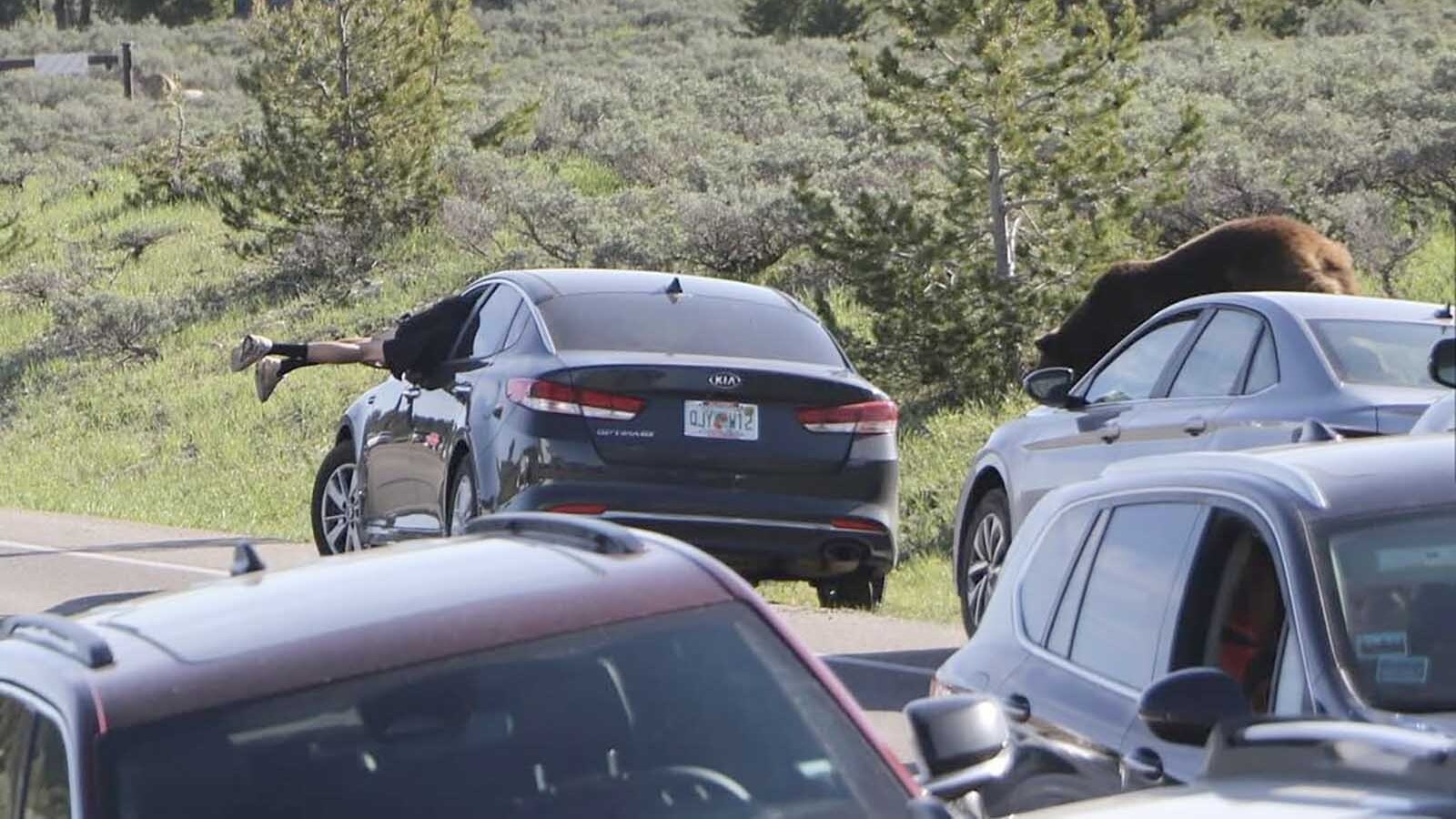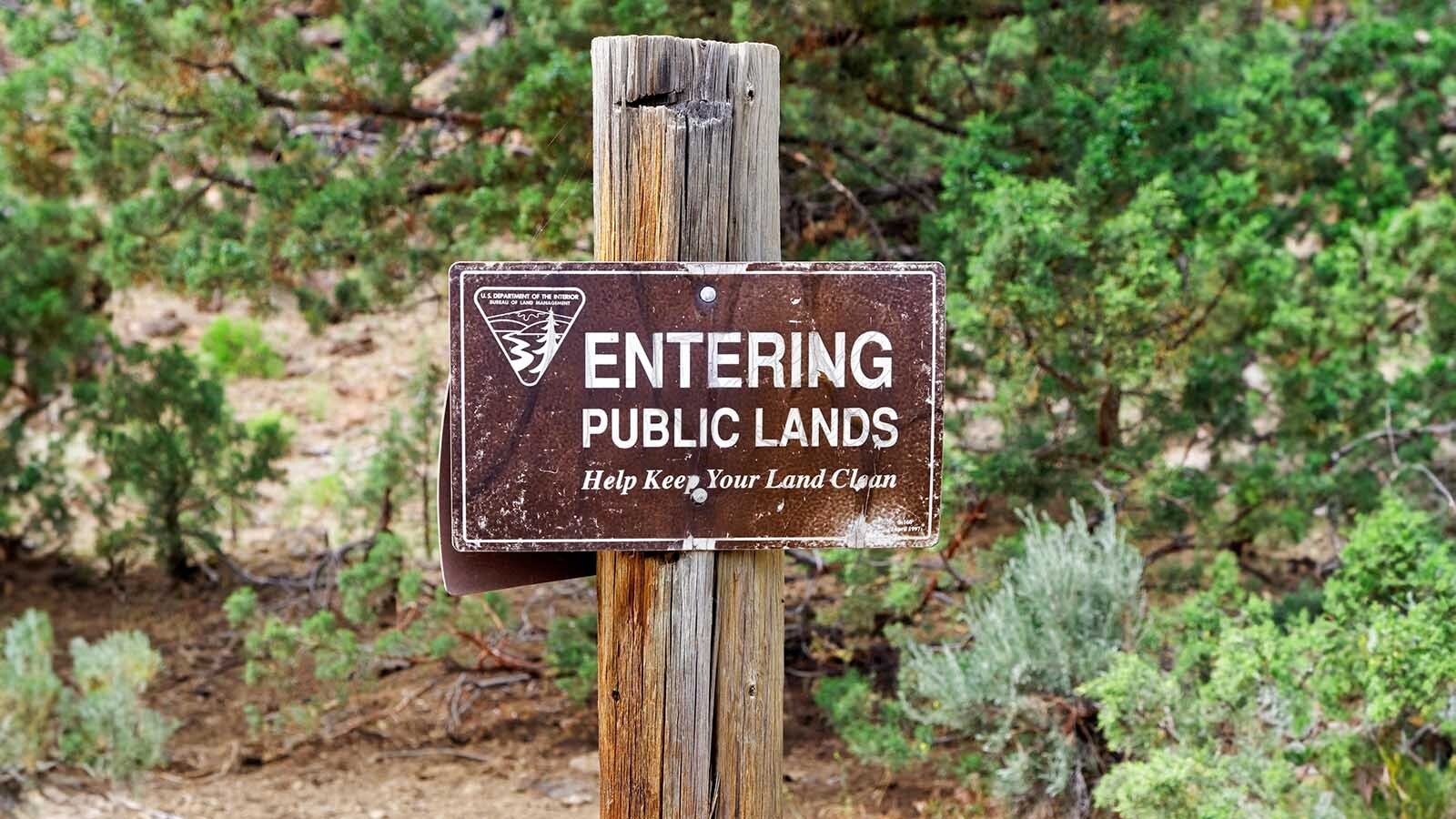Calling the BLM’s preferred Rock Springs Resource Management Plan an “outrageous land grab,” U.S. Sens. John Barrasso and Cynthia Lummis want the agency to kill it.
The Wyoming Republicans, along with Utah’s Senate delegation of Mitt Romney and Mike Lee, have sent a letter to BLM Director Tracey Stone-Manning, urging her to withdraw the BLM’s draft resource management plan revision (RMP) and its accompanying draft environmental impact statement (EIS) for 3.6 million acres of surface land in the Rock Springs area of southwest Wyoming.
In a Wednesday press release, the senators call the plan “misguided” and a “land grab,” and they urge Stone-Manning to kill the BLM’s preferred alternative and draft a new proposal that better considers the wishes of stakeholders and residents in Wyoming and Utah.
The plan will guide the management of Wyoming land managed in trust by the federal government like the Red Desert and Greater Little Mountain area.
“Given the outsized impact this policy change will have on communities across the nation and the lack of local support, it is imperative that the BLM withdraw this RMP draft entirely,” the senators wrote.
A spokesperson for Barrasso said they hadn’t received a response to the letter as of Wednesday morning.

Balance
Many in Wyoming have criticized the RMP as having a disproportionately negative impact on recreation and industry in southwest Wyoming compared to the conservation benefits that could result from the plan.
In August, the BLM revealed that it prefers Alternative B, which is considered the most aggressive conservation effort.
“This Rock Springs RMP will exclude, prohibit and bar all access, management and use of vast swaths of federal land throughout the United States,” U.S. Rep. Harriet Hageman told BLM Deputy Director Michael Nedd during a September congressional hearing. “You exclude not only oil and gas development, but livestock grazing and recreation.”
According to the draft, 8,576 acres of the total 3.6 million would be made unavailable for livestock grazing. The remaining 99.8% of the area would continue to be leased to cattle ranchers and wool growers, according to the document. It also would impact mineral leasing for energy industries, as well as motorized vehicle access to many areas.
The plan also will affect many people in Utah who live near the Rock Springs management area and travel there to recreate.
“We urge the BLM to fully consider the impact that this proposed designation will have on Wyoming and Utah communities,” the senators wrote. “Over a decade’s worth of Wyoming input should not be scrapped for a broad Washington mandate.”
One of the chief frustrations expressed about the RMP is that many believed a different plan considered more of a compromise — Alternative D — was being pursued and preferred by the BLM employees and others working on it. Planning for the RMP started in 2011, with many public meetings held over the last dozen years.
The BLM now is ignoring that work and input, the senators say in their letter.
“This draft RMP unfortunately falls short of including over a decade's worth of time, knowledge and input,” they wrote.
Areas of Critical Environmental Concern
Alternative B classifies 1.6 million acres of land as “areas of critical environmental concern” (ACEC). There are 200,000 acres of ACEC the field office manages now, so this would push the amount of total critically managed areas to about half of the 3.6 million total acres of land managed by the field office, or a 700% increase.
This would also lead to roughly 1.8 million acres of land being reduced to single use under the Federal Land Policy and Management Act. In the past, these areas have traditionally been multiple uses.
“This ACEC designation, if enforced, will inevitably end grazing, critical transmission line improvements and gas production that powers the region,” the senators wrote.
They also said the BLM has no accurate database of ACECs or standard format for reporting these areas, which has led to a “delta of distrust” about what the implications of the Rock Springs draft plan really are.
In recent years, the senators say the BLM has used ACECs to restrict recreation, remove grazing rights and hinder economic development in lower-income communities. The southwest region of Wyoming is generally one of the less affluent parts of the state.
Nuance
The land use plan is in its draft stage at this point and could still be significantly revised before finalized. The BLM is accepting comments on the plan until Nov. 16.
Although the vast majority of public response to the plan has been negative, some in the conservation community like the Wyoming Outdoor Council have supported the BLM’s preferred alternative.
Earlier this month, a retired BLM employee told the state Joint Federal Natural Resource Management Committee that Alternative D, the most balanced plan that served both conservation and economic and recreation interests, was rejected by both former President Donald Trump’s administration and President Joe Biden’s administration.
The former employee, James Evans, said it’s disheartening that two presidential administrations pushed plans with the least amount of effort put into them.
“The science and the work to do that was all done on D,” Evans said. “And it’s kind of a shame that what the people in the field office and the cooperators spent all that time doing was rejected.”
Leo Wolfson can be reached at leo@cowboystatedaily.com.





